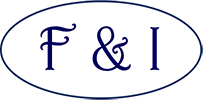Report on the Equestrian Coaching in the 21st Century CPD Seminar
Sam York FBHS and the Equine team at Nottingham Trent University presented the inaugural ‘Equestrian Coaching in the 21st Century’ CPD seminar for industry professionals. The day aimed to bridge the gap between research and front-line practitioners, providing a multi-directional seminar that encouraged debate about the uses of current technology, relevant to equestrian sports coaching.
A selection of talented students rode whilst presenters from Nottingham Trent University and the industry demonstrated novel concepts, uses for technology, and current research that has direct application to the industry. The public conference attracted a good deal of interest from around the country, and as a result, there are plans to deliver the seminar at various venues around the UK and Ireland. The day revolved around thought-provoking discussions based on improving coaching technique, including integrating methods used in other sports, cutting edge research and considering how we can use a variety of novel methods for equestrian athletes at all levels.
Delegates recognised the complexities of new technology, and the fear of it being unreliable, unavailable and expensive, as well as too difficult to use. There was agreement that these types of workshops allowed coaches to consider and share new techniques, and as a result, they would become more comfortable trialling novel methods. Additionally, understanding young people’s use of technology can help to increase young rider engagement and allow coaches to work with them in a preferred and effective way.
One topic for this first event was assessing rider gaze behaviour using an eye-tracking device. Presented by Dr Carol Hall, This device indicates exactly where the rider is looking by placing a circle of focus onto a screen showing the rider’s field of view. This was demonstrated live on the large screen in the Mary King Arena at NTU’s Brackenhurst campus. Final year BSc (Hons) Equine Sports Science student Lizzie Baugh, who has also just been selected for Team GB at the Young Rider European Championships in Eventing, was put through her paces by Nick Turner FBHS. Whilst she jumped a selection of fences the audience could see exactly where she was looking on the large screen. This sparked a great discussion on where the rider was looking and should look, as well as suggestions for future research to investigate the effects of where the rider looks on the horse’s way of going. This could feed into coach education as to where riders should be encouraged to look and the possibility of that being different for the different disciplines. https://youtu.be/jXgVVIBd0lc
Other technologies, such as computer modelling of falls, safety implications of posture, presented by Lauren Birkbeck (MRes), investigating saddle design and stirrup length and their subtle implications, also generated great debate. This again was one of the great benefits of the day, where academic researchers and front line coaches could talk openly and share their own expertise, assisting both parties with a view to improving equitation and sport horse training across the board.
Further technologies and discussion on the day consisted of benefits and considerations of immediate visual feedback, video analysis and appropriate apps that were easy to use for coach and rider, as well as an insight to the current research and benefits of these and other techniques being used in a variety of sporting environments.
Rein tension technology was also demonstrated at length and this really did bring some lively debate, mainly on the amount of tension / weight that should be in the riders hand. This was a great demonstration of where technology could quantify what the naked eye cannot. This section also highlighted that the technology alone is never enough; just because a gadget can tell us a number we could aim for, whole picture must be addressed. The rein tension may be “optimal”, but if the horse’s overall way of going is not desirable, then we as coaches have to step in and adjust. This was very well highlighted by one of our guest delegates Carole Broad FBHS, and perfectly illustrated the need and want for greater collaboration between researchers and practitioners. This event will be running at further venues across the UK and Ireland and it will be one that you will not want to miss.
It’s very important that we really embrace a quick moving sports science industry that we keep up with other professional sports and ensure we are the leaders in equestrian sports around the world.
This does not take anything away from the great traditional coaching; depth of experience and tried and tested techniques will never be replaced, it simply enhances what great coaches are able to do. These practices will be backed up with the reassurance that the ‘what and why’ of modern coaching techniques are proven with researched evidence. To conclude, this seminar was always intended to be a two-way conversation; to showcase technologies and research, to encourage discussion and debate, and to learn from each other; this is the real value of days such as this.
